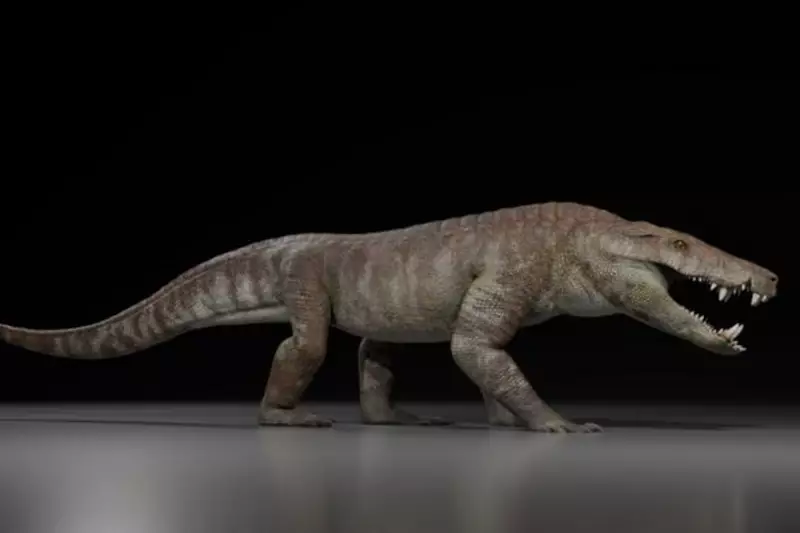
In a stunning paleontological breakthrough, scientists from the University of Bristol have identified a terrifying new species of ancient crocodile relative that was likely one of the most fearsome predators of its time, capable of preying on early dinosaurs.
The newly discovered species, named Gambetta vorax, translates to 'voracious Gambetta' and paints a picture of a truly formidable carnivore. This 'river boss' was no sluggish swamp-dweller; it was an agile, land-based apex predator that ruled the Triassic landscape over 200 million years ago.
A Top Tier Predator
Analysis of the creature's fossilised remains, particularly its powerful, ziphodont teeth—serrated blades designed for slicing through flesh—indicates it was a hypercarnivore. This means its diet consisted almost exclusively of meat, placing it at the very top of the food chain.
"This was a animal that ate meat for breakfast, lunch and dinner," explained the lead researchers. Its considerable size, coupled with its specialised dentition, suggests it was more than capable of taking down sizeable prey, including the early dinosaurs and large mammalian ancestors that shared its environment.
Rethinking Crocodile Evolution
The discovery of Gambetta vorax is significant because it challenges our understanding of crocodilian evolution. It belonged to a group called the pseudosuchians, which were the 'other' crocodile-line archosaurs that lived alongside the ancestors of modern birds and dinosaurs.
This find provides crucial evidence that these crocodile relatives were not merely lurking in the shadows of dinosaurs but were dominant, diverse, and highly successful predators in their own right. They occupied a wide range of ecological niches before the reign of the dinosaurs truly began.
The research, led by a team of UK-based scientists, underscores the dynamic and complex nature of ecosystems during the Triassic period, a time of incredible evolutionary experimentation and turnover.





